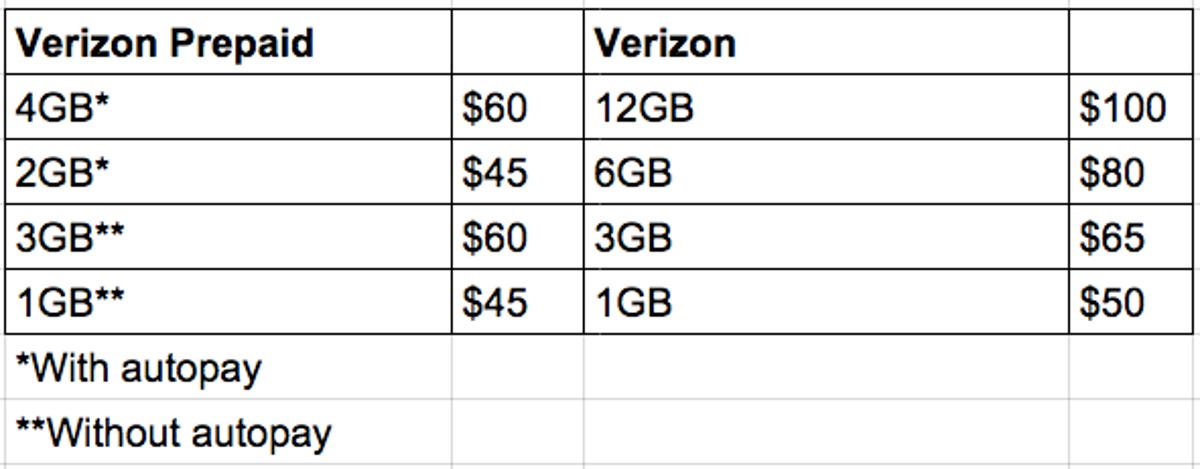Savvy shoppers already know that buying generic brands of products such as cold medicine and cereal will save you big bucks. Could the same be true for wireless service?

In this edition of Ask Maggie I explain the pros and cons of using “off-brand” prepaid wireless services, which are owned by the national carriers themselves.
Dear Maggie,
I’m an AT&T wireless customer. I just found out that Cricket Wireless is owned by AT&T. I had no idea! I checked pricing and it’s about half what AT&T’s regular service costs. What’s the catch? It got me wondering if the other major carriers offer something similar. If it’s the same service and the same coverage, why not? Right?
Thanks,Feeling Enlightened
Dear Enlightened,
You’re definitely on to something. For years prepaid wireless services, which require you to pay upfront for all your voice minutes, text messages and data, targeted people with poor or no credit. More recently, savvy customers have realized there are bargains to be had in prepaid.


Prepaid service can save consumers a bundle. But what are the trade-offs?
CNET
There are dozens of prepaid brands on the market. Many, like Tracfone, have existed for years by leasing access from the big four carriers to serve lower income consumers. With more consumers looking at prepaid as a legitimate option, the bigger carriers have amped up their low-priced services, typically through a separate prepaid brand like AT&T’s Cricket. There are particularly good deals if you’re looking for a single line.
You’re smart to be cautious. There are some catches you should be aware of before you ditch your old plan for a low-cost one offered by your carrier.
To better explain the costs, I’ve created comparison charts for each of the four major carriers.
AT&T
Cricket was a regional prepaid carrier with limited coverage before it was scooped up by AT&T in 2013. Now it gets access to the same network and many of the same devices as its parent. AT&T, meanwhile, still offers its prepaid GoPhone service.
Cricket’s prepaid plans cost about 40 percent less than AT&T’s contract plans. For customers with a single line, AT&T offers 5GB of data with unlimited talk and text messaging for $75 a month. Cricket’s comparable service is $45 a month. Cricket is also less expensive than AT&T’s GoPhone prepaid brand, which offers 4GB of data for $55 a month.


The catch? AT&T caps download speeds on the Cricket service at 8 megabits per second. This is a big deal considering CNET tested AT&T’s network in August and was able to get average download speeds of 40.5 Mbps in some areas. For Cricket customers, this low speed likely means slower downloads and more buffering when streaming video and audio on their smartphones.
Sprint
Sprint has long been in the prepaid business. It has two off-brand wireless services, Boost Mobile and Virgin Mobile, alongside its own Sprint-branded option.
The Boost and Virgin plans follow the easy flat rate pricing that many in the industry offer. While they are similar, Boost offers a better value over Virgin, if you consistently pay your bill on time. Both brands are less expensive than Sprint’s traditional service, and even the Sprint-branded prepaid offer. The biggest price difference is around the 8GB tier of service. Virgin Mobile has a plan for $55 a month, Boost’s plan is $45 a month and Sprint’s traditional plan is $85 a month.


The catch? Customers on Sprint’s prepaid brands and services can’t take advantage of the carrier’s device leasing programs. Instead, they must pay full price for devices. The coverage maps for Boost and Virgin are also not as extensive as Sprint’s because these services don’t take full advantage of Sprint’s roaming partnerships, leaving some areas without service.
T-Mobile
T-Mobile offers its own prepaid service as well as MetroPCS, which like Cricket, started life as a regional carrier.
Also like Cricket, MetroPCS gets access to its parent’s network and devices. MetroPCS customers are able to use any unlocked device that’s compatible with T-Mobile.
Even though the services are nearly identical, MetroPCS customers can expect to pay 30 percent less than T-Mobile’s Simple Choice customers. T-Mobile charges $90 a month for unlimited 4G LTE data service. MetroPCS charges $60 for the same unlimited plan.


The catch? Customers on MetroPCS and T-Mobile’s Simply Prepaid plans can’t take advantage of the Simple Choice extra benefits, such as Binge On, a feature that lets customers stream video without it counting against their data caps. T-Mobile doesn’t cap the speeds of MetroPCS service, but the carrier gives T-Mobile traffic priority during times of congestion on the network. When the network is crowded, MetroPCS customers have to go to the back of the line. Also, customers from MetroPCS can’t take advantage of T-Mobile’s device leasing or finance programs.
Verizon
Verizon is the only major wireless carrier in the US that doesn’t own and operate a separate low-cost prepaid brand. Instead, the carrier continues to offer and adapt its existing prepaid wireless service under its Verizon brand. Prices vary between the prepaid offering and the traditional service plan, but not by much. Still, customers, especially those who are paying for only one line, are likely to save money on Verizon’s prepaid service.


The catch? Verizon’s traditional plans are designed for families who want to share data. The prepaid offer doesn’t let customers share. Also, there’s no device financing available for customers on the prepaid service. This means they have to pay full price for their devices.
Ask Maggie is an advice column that answers readers’ wireless and broadband questions. If you have a question, I’d love to hear from you. Please send me an e-mail at maggie dot reardon at cbs dot com. And please put “Ask Maggie” in the subject header. You can also follow me on Facebook on my Ask Maggie page.



